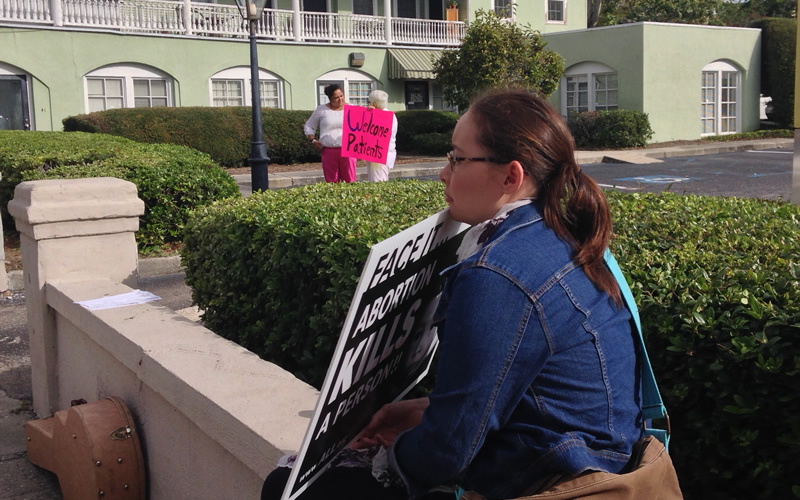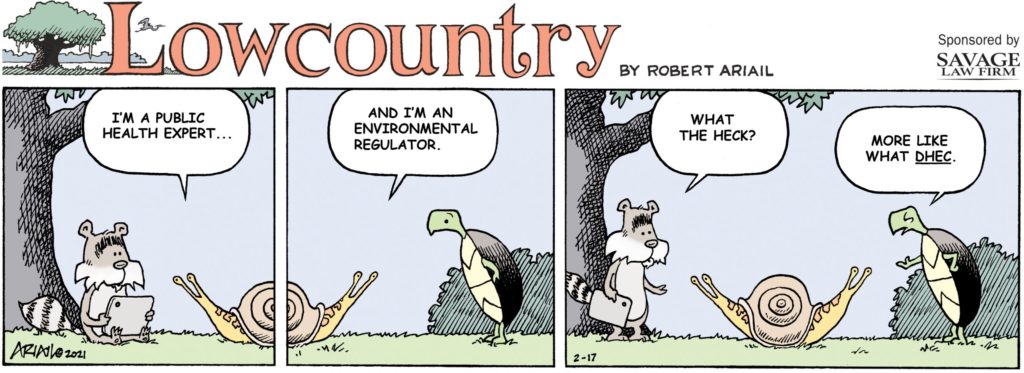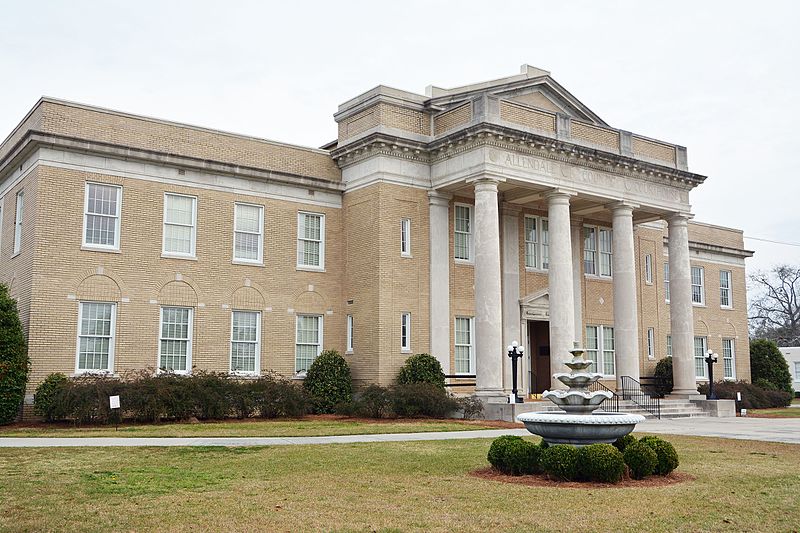STATEHOUSE REPORT | ISSUE 20.08 | FEB. 19, 2021
BIG STORY: Progressives say it’s time to go on offense
NEWS BRIEFS: Groups file suit, blast state’s new abortion ban
LOWCOUNTRY, Ariail: What the heck?
COMMENTARY, Brack: Bald power grab could frazzle election process
SPOTLIGHT: AT&T
MY TURN, Brave and Legette: Support building for $15/hour minimum wage
FEEDBACK: Legislature focusing on wrong priorities
MYSTERY PHOTO: Third time’s a charm
Progressives say it’s time to go on offense

News analysis by Andy Brack, editor and publisher | South Carolina’s Republicans are pressing legislative advantages like never before with legislative victories long dreamed of by their right-wing and corporate bases.
Just this week, they passed a years-long effort to thwart almost all abortions. Gov. Henry McMaster signed the measure into law Thursday. It’s already been challenged in federal court.
Ahead are other GOP goals:
- Allowing the open carry of handguns, a proposal opposed by many in law enforcement;
- Limiting business liabilities, particularly for pandemic-related issues;
- Restructuring some agencies; and
- Selling a public utility to a privately-held conglomerate that’s fuelled political coffers.
Sure to come: Creating more partisan legislative districts, relaxing environmental rules, using more public money for private educational purposes and more.
![]() It’s happening in large part because Republicans picked up three seats in the S.C. Senate, giving the party a 30-16 majority. When the GOP controlled 27 seats, it was easier for united Democrats to pick off one or two votes to shut down debate on issues that had been dreams for years.
It’s happening in large part because Republicans picked up three seats in the S.C. Senate, giving the party a 30-16 majority. When the GOP controlled 27 seats, it was easier for united Democrats to pick off one or two votes to shut down debate on issues that had been dreams for years.
The abortion debate is a telling example of what’s to come. In prior years, the House typically debated something on abortion after it finished the annual budget, only to run into a yearly roadblock in the Senate. This year, though, the newly-emboldened GOP Senate leadership made a ban on abortions six weeks after conception as its top objective, numbering the bill as “S. 1.” The 2021 twist: The House rubber-stamped a Senate effort on abortion.
With legislative movement on GOP initiatives, now comes two questions: What are the Democrats going to do to make a difference? When are they going to go on offense?

“That’s what I’ve been saying all along,” one activist said. A state representative agreed. As did a Democratic party leader: “You are correct and it has always been more difficult to get the free-thinking Democrats to all come together to get on offense,” said Trav Robertson, chairman of the S.C. Democratic Party.
“We are getting on offense as it relates to redistricting. We are getting on offense as it relates to voter registration. Please keep in mind that what occurred in Georgia started 10 years ago.”
In other words, it’s going to take awhile. It took Georgia 10 years and a lot of sweat and hard-core grassroots organizing to flip its two U.S. Senate seats from the GOP to Democrats and to turn the presidential election from red to blue.
A little pushback
Senate Minority Leader Brad Hutto, D-Orangeburg, pushed back on the notion that Democrats have been playing only defense in recent years, despite the GOP controlling the House since 1994 and the Senate since 2000.

“I would point to lottery, First Steps, expansion of 5K and 4K (education), removal of the Confederate flag (twice), the roads bill, Charleston [International African American] Museum, free technical college, expansions of CHIPS (Children’s Health Insurance Program), and the siting of Boeing, Volvo and Amazon in Democratic districts,” he said, adding that Democrats were key in teacher pay increases, children-related health and safety issues including ATV safety, child safety seats and HPV vaccines.
“We will continue to advance progressive ideas and policy.,” he said.
Hutto blasted Republicans for wasting time through the years on divisive issues, such as efforts to erect barriers to voting and abortion and to open access to guns.
“These are what I call sorta screw-ups versus positive things for South Carolina,” he said, also pointing to property tax reform with Act 388 that he said “backfired.”
“How many years have we spent most of our session on abortion and guns? Wasted time not addressing what moves South Carolina. Anybody remember all of the income tax brackets and voucher schemes they promoted and we thwarted?”
What’s ahead
Progressive advocates say the way to push their proposals is to get better offense through better grassroots organization, much like was done in neighboring Georgia to turn it from red to blue. But it’s not going to be easy.
“This work has always been difficult but the only choice we have is to work for inclusion, equity and all the people of our state,” said Sue Berkowitz, head of the S.C. Appleseed Legal Justice Center. “We will also utilize all tools available to ensure that checks and balances protect everyone in South Carolina.”
Longtime Columbia activist Brett Bursey of the S.C. Progressive Network said a key to progressive reform was to fight for fairly-drawn maps in the redistricting process, which starts later this year with the results of the U.S. Census.
“We’ve got to figure out a way to departisanize our democracy — a way of doing this that is doing something that is run by a grassroots campaign outside of the existing system that’s rigged,” he said.
Bursey pointed to a citizen campaign to end gerrymandering that has been called Fair Maps SC Coalition, but is expected to be rebranded this year. The effort would focus on creating competitive voting districts by transferring power to draw them from legislators in office to an independent panel of state citizens. Such an effort would take county-by-county organizing to get a referendum on the ballot to amend the state constitution, he said.
“We want to see competition. Gerrymandering is the opposite of competition,” he said, later adding that thanks to computer programs “it’s not hard to do fair maps; it’s hard to do gerrymandering.”
Frank Knaack, head of the ACLU of South Carolina, agreed grassroots organizing was integral for change. His group is starting small in Charleston to educate leaders “to recognize that true public safety comes from ensuring folks have a roof over their head, comprehensive health insurance, meaningful public transportation, and real access to mental health and substance abuse services. And, also to educate folks about the true legacy of our historical and current policies that destroyed and continue to destroy Black lives and communities, including how the racial wealth divide was created and is perpetuated.”
Later, he said, “We’re looking at this as a campaign to change culture so that we can start to move these issues regardless of who is in power.”
- Have a comment? Send to: feedback@statehousereport.com. Make sure to add your name and contact information for verification.
Groups file suit, blast state’s new abortion ban

Staff reports | S.C. Gov. Henry McMaster on Thursday signed a bill that effectively banned most abortions, one of his top priorities since he took office more than four years ago. Planned Parenthood South Atlantic and Greenville Women’s Clinic immediately sued in federal court to block it. A hearing is scheduled 1 p.m. today on a temporary restraining order.
The new law prevents a woman from getting an abortion as early as six weeks into a pregnancy, which is only two weeks after a missed period. Critics say many women may not realize they’re pregnant at six weeks.
“Important health care decisions should be made by individuals in consultation with their trusted medical providers and their families, not politicians,” said Dr. Katherine Farris, chief medical officer for Planned Parenthood South Atlantic. “Abortion is a critical component of comprehensive reproductive health care, and everyone deserves to have access to the health care they need, without politicians controlling when, how, or why.”
Several advocacy groups, including the Women’s Rights and Empowerment Network (WREN), issued statements blasting the law.
“We are outraged that elected officials have disregarded the will of the people in passing this dangerous and unconstitutional ban,” said WREN CEO Ann Warner. “We believe that every person in our state has the capacity to make decisions about pregnancy and parenting for themselves, and we will never stop fighting for their rights to do so. We demand that our lawmakers show us how much they care about our lives by prioritizing bills that will address the real crises in our state, including maternal and infant mortality, inequitable pay practices, unemployment, and poverty.”
In other recent news:
![]() Statehouse corruption probe prosecutor hands off cases. Control of the S.C. Statehouse corruption probe, which netted indictments against six lawmakers and a top political operative, has been turned over to the state attorney general. More: The State.
Statehouse corruption probe prosecutor hands off cases. Control of the S.C. Statehouse corruption probe, which netted indictments against six lawmakers and a top political operative, has been turned over to the state attorney general. More: The State.
S.C. legislature integrated 50 years ago. In 1971, James Felder, Isaac Samuel (I.S.) Leevy Johnson and Herbert Fielding entered the S.C. House as the first elected Black lawmakers to serve in the legislature since the turn of the 20th century. Today, Black lawmakers hold 45 seats in the General Assembly. More: The State.
S.C. one of the least-educated states in America, study shows. South Carolina ranked No. 42 in a list of the most educated states in America, according to a study from personal finance site WalletHub. The Palmetto State earned the same spot in 2019, but dipped even lower, to No. 44, in 2020. More: The State.
McMaster, education leaders call for more need-based student aid. Higher education officials and the governor are calling on state legislators to levy more aid for college students. Enrollment dropped 13 percent across all institutions last fall, driven by the coronavirus. More: The Post and Courier.
Lawmakers approve bill to boost spending on vaccine rollouts. McMaster is reviewing a bill proposed by state lawmakers on Tuesday to spend $208 million on a vaccine allocation plan. The measure, which passed the House and Senate, would provide money to be used to administer vaccines, boost testing, increase PPE supplies and cover other vaccine-related expenses.
S.C. disabilities agency director fired without explanation. The director of the agency that provides services for South Carolinians with disabilities was fired Feb. 18 without explanation. More: The Post and Courier.
S.C. Speaker warns House: Stop being vindictive, show decorum. S.C. House Speaker Jay Lucas warned members of the House Thursday that the chamber was not a place to be vindictive or theatrical. More: AP News.
Officials seek more public oversight of special districts, more. McMaster and at least four lawmakers are calling for more scrutiny and fewer ethics loopholes for the state’s many special purpose districts. More: The Post and Courier
What the heck?

Here’s a new cartoon by Robert Ariail that first was published in our sister newspaper, the Charleston City Paper. Love it? Hate it? What do you think: feedback@statehousereport.com.
Bald power grab could frazzle election process

By Andy Brack, editor and publisher | The S.C. Election Commission is facing the possibility of a governing board that’s more partisan and beholden to the legislature after its director suggested pandemic changes to expand access to absentee voting in the November election.
 Stretch your memories to last spring as election officials prepared for the June primaries. The General Assembly approved a short-term plan to allow anyone to vote by absentee ballot. But it didn’t eliminate a requirement that a witness sign the ballot to verify the voter’s identity. A lawsuit was filed claiming health concerns and the right to vote outweighed fraud concerns over non-witnessed ballots. A federal judge agreed and there was no witness signature requirement in the primary.
Stretch your memories to last spring as election officials prepared for the June primaries. The General Assembly approved a short-term plan to allow anyone to vote by absentee ballot. But it didn’t eliminate a requirement that a witness sign the ballot to verify the voter’s identity. A lawsuit was filed claiming health concerns and the right to vote outweighed fraud concerns over non-witnessed ballots. A federal judge agreed and there was no witness signature requirement in the primary.
The June election went relatively smoothly, prompting Commission Director Marci Andino to recommend changes to make the November elections as smooth. The General Assembly agreed, but again didn’t drop the witness signature requirement. Another legal snarl came with the state Republican Party strongly arguing to keep the requirement over the bogey monster of fraud. Again, a federal judge ruled to drop the requirement, but a GOP appeal led to its reinstatement by the Republican-dominated U.S. Supreme Court.
Fast forward to this week. A bill (H. 3444) authored by GOP House Speaker Jay Lucas seeks to improve the consistency of how county election officials interpret state laws on absentee ballots. The proposal essentially would give more power to the state Election Commission (SEC) to enforce a single standard. The thinking goes that ballots needed to be administered consistently, whether you vote absentee in Oconee County or Charleston County.
But the bill also proposes changes in how members of the Election Commission would be appointed by giving input to the legislature. (Surprise!)
 Currently, the governor appoints five members of the commission. One must come from the General Assembly’s majority party and another from the minority party. That means a Democratic governor could have four Democrats and one Republican for the commission while a GOP governor could pick up to four Republicans..
Currently, the governor appoints five members of the commission. One must come from the General Assembly’s majority party and another from the minority party. That means a Democratic governor could have four Democrats and one Republican for the commission while a GOP governor could pick up to four Republicans..
But under the original Lucas proposal, the commission would expand to eight members, four of whom would be picked by the governor with only two from his party. The legislature would pick four other members, evenly split between the two parties. In other words, the commission would be four Republicans and four Democrats. But the legislature would end up picking four members, compared to zero now.
Then came more fiddling. Bill proponents added another commission member for a total of nine. The governor would be able to pick five, including four from his party. The legislature’s House speaker and Senate president still would pick four members, two from each party. In the new scheme, balance could shift to a 6-3 majority for the party of the governor, which has been controlled by Republicans since 2003. The GOP has controlled the House since 1994 and the state Senate since 2000.
Lucas’s office didn’t respond to a request for a comment. But a news report indicates the new deal between the House and governor’s office came to provide more latitude to the governor’s office and “appropriate accountability.”
Understandably, some commission watchers aren’t too happy over the reshaped bill, which passed 14-7 out of the House Judiciary Committee. Some House Democrats crowed the new formula wasn’t fair. And while the bill’s original intent to standardize practices around absentee voting makes sense, the League of Women Voters is worried.
“State Election Commission members have taken an increasingly active role in setting the agenda for South Carolina’s elections,” said the organization’s Lynn Teague of Columbia. “Who they are and who they answer to matters to all of us. Unfortunately on a commission where membership is defined on the basis of partisan affiliation, there is a temptation to represent the party, rather than the voters.”
Examples: A more partisan commission could impact locations of polling locations and distribution of staff to benefit one party over the other.
The agency didn’t take a position on Lucas’s bill, but noted party representation is required among commission members.
“With that said, SEC members have typically served in a nonpartisan way making decisions based on law, not party allegiances,” said spokesman Chris Whitmire.
Still, we’re worried about the legislature’s potential intrusion into the commission’s make-up. You should be, too.
Andy Brack is editor and publisher of Statehouse Report. His column also is published in the Charleston City Paper, Florence Morning News, Greenwood Index Journal, The (Seneca) Journal, Camden Chronicle Independent and Hartsville Messenger. Have a comment? Send to: feedback@statehousereport.com.
AT&T
 The public spiritedness of our underwriters allows us to bring Statehouse Report to you at no cost. Today’s featured underwriter is AT&T Inc.
The public spiritedness of our underwriters allows us to bring Statehouse Report to you at no cost. Today’s featured underwriter is AT&T Inc.
AT&T Inc. (NYSE:T) helps millions around the globe connect with leading entertainment, mobile, high speed Internet and voice services. We’re the world’s largest provider of pay TV. We have TV customers in the U.S. and 11 Latin American countries. We offer the best global coverage of any U.S. wireless provider*. And we help businesses worldwide serve their customers better with our mobility and highly secure cloud solutions.
- Additional information about AT&T products and services is available at http://about.att.com.
- Follow our news on Twitter at @ATT, on Facebook at http://www.facebook.com/att and YouTube at http://www.youtube.com/att.
* Global coverage claim based on offering discounted voice and data roaming; LTE roaming; voice roaming; and world-capable smartphone and tablets in more countries than any other U.S. based carrier. International service required. Coverage not available in all areas. Coverage may vary per country and be limited/restricted in some countries.
Support is building for $15/hour minimum wage

By Charles Brave and Willie Legette, republished with permission | One of the more instructive features of the 2020 national election is that Florida, which President Donald Trump carried by 3 percentage points, also passed by a substantial margin a referendum calling for a $15 an hour minimum wage.

That victory underscores the extent to which U.S. Sen. Bernie Sanders’ 2016 and 2020 primary campaigns and initiatives like The Fight for $15 campaign have successfully put a living wage on the national political agenda.
The movement for a living-wage represents an effort to curb the growing inequality in American society and the declining material well-being and purchasing power of American workers. And, few states would benefit more from a living wage than South Carolina, one of five states that does not have a state minimum wage law.

The federal minimum wage is the baseline for employers in the state. A single adult needs to earn $11.76 per hour working full time to meet her basic needs in South Carolina, $4 more than the current minimum wage. According to David Cooper at Economic Policy Institute, the wages of roughly 684,000 South Carolina workers — a third of the state’s workforce — would increase if the state adopted a $15 minimum wage by 2025.
South Carolina ranks in the bottom 10 states in a national ranking of best states to raise a family. It ranked 47th for median non-mortgage debt; 46th for median credit score and foreclosure rate; 44th for child day-care services; 43rd for day-care quality and median family income; and 42nd for life expectancy. A living wage in South Carolina would undoubtedly address many of these issues.
However, it is essential to note that $15 per hour would not constitute a living-wage for many South Carolina families. Needs vary depending on family type and the county or city in which the family lives. On average, a living wage for a single parent and one child is $23.16 per hour. But, the living wage varies from $13.80 per hour in Orangeburg County to $22.94 per hour in Charleston County.
The number of low-wage jobs in South Carolina is typical for states across the U.S., where job growth before the pandemic looked strong. But, many of the jobs that came back after the Great Recession offer meager wages, and few provide benefits like health insurance and retirement savings.
Three of South Carolina’s top 10 occupations — food preparation and serving workers, cashiers and servers — have median earnings of less than half of a living wage. Wages for these occupations are so low that two adults working full-time would not earn enough to meet two children’s basic needs in most counties in South Carolina.
Political elites in South Carolina, regardless of party, race, gender or sexual orientation, have primarily been hostile or indifferent to workers’ urgent needs. There have been few efforts in the South Carolina General Assembly to address low wages. For example in 2016, S.C. Sen. Marlon Kimpson (D-Charleston) introduced a bill to increase the minimum wage to $15 an hour by 2020.
Republicans on the committee claimed that increasing the minimum wage would encourage businesses to relocate to other states. They also argued that business owners should set wages because they wanted to “see the free market working without involving the government.” Kimpson correctly pointed out that the General Assembly funneled millions of dollars in incentives to Boeing and Volvo to locate in South Carolina.
The low-wage crisis exists in South Carolina because, as Kimpson asserted to the General Assembly, “We haven’t passed one bill to benefit workers in South Carolina … but we’ve passed a lot of incentives for business.”
While Kimpson’s bill did not pass, it does represent a growing interest to increase the minimum wage. According to a 2015 Winthrop Poll, two-thirds of South Carolinians support an increase in the minimum, as does the S.C. Small Business Chamber of Commerce.
As the vote in Florida showed clearly, the need for a real living wage is not a partisan issue. Floridians supported the $15 an hour wage initiative whether they voted Democratic or Republican in the presidential and congressional elections. That makes it clear that this is a proposal whose time has come, and it appeals broadly among working people.
Charles Brave is president of S.C. AFL-CIO. Willie Legette is professor emeritus at S.C. State University and organizer for the Debs-Jones-Douglass Institute. This commentary originally was published in the Charleston City Paper.
Legislature focusing on wrong priorities
To the editor:
![]() Seems the S.C. legislature is concentrating on zero abortion, open carry guns and reinstating the death penalty. Have they noticed that we have the highest COVID transmission rate in the country? How about some constructive help from Columbia?
Seems the S.C. legislature is concentrating on zero abortion, open carry guns and reinstating the death penalty. Have they noticed that we have the highest COVID transmission rate in the country? How about some constructive help from Columbia?
Looks like DHEC needs some support. Getting a COVID vaccine appointment is the #1 priority right now. And masks ? Their bill suggests S.C. should make itself exempt from any federal mandate. Certainly do not feel they are doing anything for my benefit.
Love Bob’s cartoons!
— P.R. Cooke, Beaufort
Send us your thoughts
We love hearing from our readers and encourage you to share your opinions. But to be published, you’ve got to provide us with contact information so we can verify your letters. Letters to the editor are published weekly. We reserve the right to edit for length and clarity. Comments are limited to 250 words or less. Please include your name and contact information.
-
- Send your letters or comments to: feedback@statehousereport.com
Third time’s a charm

If you’ve not guessed the identity of the last two mysteries, here’s a third brick building somewhere in South Carolina. Send your guess to feedback@statehousereport.com — and remember to include your name, home city and contact information.
 Last week’s mystery, “Here’s another brick building,” showed an illustration of Tommy’s Country Ham House in Greenville, a classing meeting space for politicos for years. It’s closing soon to allow owner Tommy Stevenson to retire.
Last week’s mystery, “Here’s another brick building,” showed an illustration of Tommy’s Country Ham House in Greenville, a classing meeting space for politicos for years. It’s closing soon to allow owner Tommy Stevenson to retire.
Kevin Mertens of Greenville correctly identified the photo on the same day that he ate there. When asked his order, he said the restaurant was packed after the announcement. He ate “country-style steak, rice, Lima beans and chocolate cream pie.” Sounds awesome.
Others who correctly identified the restaurant, which will become a new restaurant for Charleston’s Lewis Barbecue, were George Graf of Palmyra, Va.; Taft Matney of Greenville; Dan Jepson of Travelers Rest; and Allan Peel of San Antonio, Texas.
Send us a mystery. If you have a photo that you believe will stump readers, send it along (but make sure to tell us what it is because it may stump us too!) Send to: feedback@statehousereport.com and mark it as a photo submission. Thanks.
ORDER NOW: Copies are in Lowcountry-area bookstores now, but if you can’t swing by, you can order a copy online today.
ABOUT STATEHOUSE REPORT
Statehouse Report, founded in 2001 as a weekly legislative forecast that informs readers about what is going to happen in South Carolina politics and policy, is provided to you at no charge every Friday.
Meet our team
- Editor and publisher: Andy Brack, 843.670.3996
- Special correspondent: Lindsay Street
Donate today
We’re proud to offer Statehouse Report for free. For more than a dozen years, we’ve been the go-to place for insightful independent policy and political news and views in the Palmetto State. And we love it as much as you do.
But now, we can use your help. If you’ve been thinking of contributing to Statehouse Report over the years, now would be a great time to contribute as we deal with the crisis. In advance, thank you.
Buy the book
Now you can get a copy of editor and publisher Andy Brack’s We Can Do Better, South Carolina! ($14.99) as a paperback or as a Kindle book ($7.99). . The book of essays offers incisive commentaries by editor and publisher Andy Brack on the American South, the common good, vexing problems for the Palmetto State and interesting South Carolina leaders.
More
- Mailing address: Send inquiries by mail to: P.O. Box 21942, Charleston, SC 29413
- Subscriptions are free: Click to subscribe.
- We hope you’ll keep receiving the great news and information from Statehouse Report, but if you need to unsubscribe, go to the bottom of the weekly email issue and follow the instructions.
- Read our sister publications: Charleston City Paper (every Wednesday) | Charleston Currents (every Monday).
- © 2021, Statehouse Report, a publication of City Paper Publishing, LLC. All rights reserved.
















 We Can Do Better, South Carolina!
We Can Do Better, South Carolina!